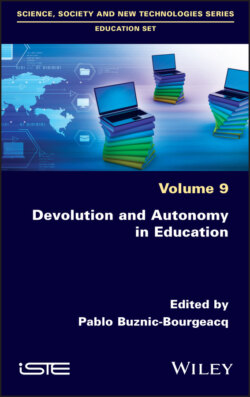Читать книгу Devolution and Autonomy in Education - Группа авторов - Страница 10
Devolution process
ОглавлениеSituation theory has several aspects: a position of epistemological logic and a didactical engineering position, and more recently, a position of analyzing ordinary teaching and learning situations.
At the epistemological level, the project of situation theory is to describe mathematical knowledge through fundamental situations: “a situation schema capable of generating, through the interplay of didactic variables that determine it, the set of situations corresponding to a given knowledge” (Brousseau 2003, p. 3). It is therefore a question of representing institutional knowledge through situational knowledge in a situation (institutional knowledge → situational knowledge). In order to do this, it is necessary for this situational knowledge to “correspond” to a specific institutional knowledge. I propose then to say that this situational knowledge is appropriate to this institutional knowledge: the adjective “adequate” (the French “idoine”), often used by Yves Chevallard (Chevallard 2002), refers in fact to what is “specific to something”.
At the level of didactic engineering, the theory of situation’s project is to allow the empirical confrontation of theory (in particular, in terms of fundamental situations) with contingency and, in particular, to verify that the situational knowledge invested by students in adidactic situation constructed by engineering is appropriate to the institutional knowledge determined in advance.
Empirically, it is not simple: it is not enough to ask a teacher to respect a scenario, and this is how the incredible adventure of COREM (Salin and Greslard 1998) was born from the idea that it was necessary to implement quite exceptional experimental conditions, in an entire school (kindergarten– elementary), so that original situations could be experimented on. Part of the teacher’s work in this framework is, in particular, that of participating in the process of devolving an adidactic situation, that is, of committing the pupil to investing in a milieu in order to realize an issue that has been defined in advance. In these experimental conditions, the devolution process depends on the quality of the situations constructed by the engineering team, which must guarantee that everything has been done to ensure that the student can invest the proposed milieu and issue, and that the situational knowledge involved in the student–milieu interaction is an appropriate component of the knowledge to be taught.
Didactic engineering plays, for theory of situations, the role of phenomenotechnics (Bachelard 1934): it is not a goal in itself. Contrary to what is sometimes considered in a popularized version, it is not a “constructivist” theory, especially in a radical version of constructivism, of which Brousseau (2003, p. 5) clearly writes that it is condemned as a didactic model. Brousseau still considers both learning by adaptation (from situational knowledge to institutional knowledge) and learning by acculturation (from institutional knowledge to situational knowledge) (Bessot 2011).
In ordinary (non-experimental) situations, regardless of the teacher’s pedagogical orientation, teaching is more or less an adaptation/acculturation continuum. The most “active” lessons are aimed in fine at the acquisition of institutional knowledge, the most “formal” lessons are also aimed in fine at the implementation of situational knowledge in situations. In the rest of this text, by focusing on ordinary teaching situations, I do not prejudge the pedagogical considerations that lead the teacher to construct them. In any case, the processes of devolution (which we are particularly interested in here) and institutionalization are at play.
When ordinary teaching situations are observed, the conditions concerning the situations cannot be fully met, regardless of the professionalism, experience and commitment of the teacher and regardless of the quality of the resources on which he or she relies. Under ordinary conditions, the devolution process becomes more complicated because it is necessary not only to maintain the commitment of the students in a situation entirely determined in advance but also to regulate or even modify the situation itself so that it continues to correspond to the didactic project of the teacher. This raises the question of the criteria for such a “correspondence”.
